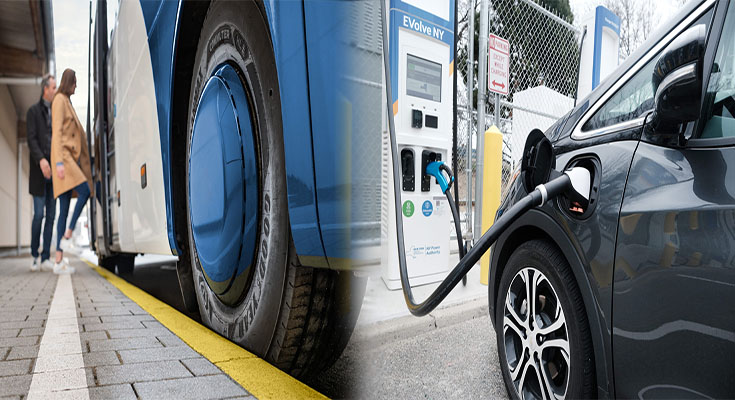In today’s world, where sustainability and environmental concerns are becoming increasingly important, transportation electric vehicles (EVs) are emerging as a viable option for urban commuting. With their numerous advantages over conventional gasoline-powered vehicles, EVs offer a greener and more efficient means of transportation. In this article, we will explore the advantages of transportation electric vehicles for urban commuting and how they contribute to a cleaner and more sustainable future.
1. Environmental Benefits
One of the most significant advantages of transportation electric vehicles is their positive impact on the environment. Unlike gasoline-powered vehicles, EVs produce zero tailpipe emissions, reducing air pollution and improving urban air quality. By using electricity as their primary source of power, EVs help to reduce greenhouse gas emissions, contributing to the fight against climate change.
2. Energy Efficiency
Electric vehicles are highly efficient in converting electrical energy from the grid to power the vehicle. Traditional internal combustion engines are considerably less energy efficient, as they waste a significant portion of the energy generated as heat. EVs, on the other hand, can convert more of the electrical energy into actual motion, resulting in greater energy efficiency and reduced energy consumption.
3. Lower Operating Costs
Compared to gasoline-powered vehicles, electric vehicles tend to have lower operating costs. Charging an EV typically costs less than refueling with gasoline, especially when electricity rates are low. Additionally, EVs have fewer moving parts, which means reduced maintenance and repair costs over the long term. This can result in significant savings for urban commuters and contribute to overall cost-effectiveness.
4. Noise Reduction
Another advantage of transportation electric vehicles is their quieter operation. EVs produce significantly less noise than traditional vehicles, making them ideal for urban environments. This reduction in noise pollution contributes to a more peaceful and enjoyable commuting experience for both passengers and pedestrians.
5. Government Incentives and Support
Many governments and local authorities are actively promoting the adoption of electric vehicles by providing incentives and support. These can include financial incentives, such as tax credits or rebates, dedicated electric vehicle lanes, and charging infrastructure development. Taking advantage of these incentives can further enhance the benefits of using an electric vehicle for urban commuting.
6. Technological Advancements
With rapid advancements in technology, electric vehicles are continuously improving. Battery technology is becoming more efficient, allowing for longer driving ranges, faster charging times, and increased overall performance. These technological advancements ensure that electric vehicles remain a practical and convenient option for urban commuters.
Transportation electric vehicles offer numerous advantages for urban commuting. From their positive impact on the environment and energy efficiency to lower operating costs and noise reduction, EVs are contributing to the development of sustainable and cleaner cities. With government support and technological advancements, electric vehicles are becoming an increasingly attractive option for urban dwellers looking for a greener and more efficient means of transportation. By embracing transportation electric vehicles, we can pave the way towards a more sustainable future while enjoying the benefits they offer for our urban commuting needs.













